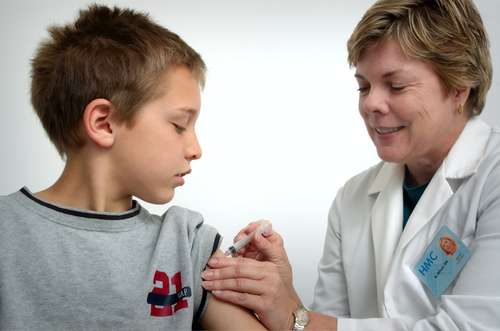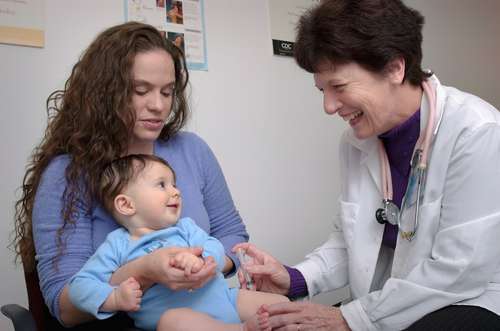It might surprise you to learn that rare appendix cancer cases are increasing among Gen Xers and Millennials. We used to think of this form of cancer as extremely uncommon, but recent research now shows that the risk for these age groups is three to four times higher than for those born in the 1950s. It’s unsettling to realize that even cancers labeled as rare can suddenly pose a significant threat to people we thought were less vulnerable. This shift in the statistics is a reminder that none of us is completely immune.
In our everyday lives, we often take our health for granted, believing that some diseases only affect others. Yet, here we are, facing a scenario where younger generations are increasingly at risk. With countless questions about why these changes are occurring, it's important we get informed about appendix cancer—what it is, why it’s rising, and what you can do to stay ahead of it.
Understanding Appendix Cancer
Before diving into the latest findings, let's first understand what appendix cancer or appendiceal cancer entails. Most of us aren’t familiar with this condition because it accounts for a small percentage of all cancers. However, its rarity is deceptive; the diagnosis often comes as an unexpected surprise during surgery for other abdominal issues.
This form of cancer tends to fly under the radar because it doesn’t always produce the classic symptoms you'd expect with more common cancers. Imagine a small leak in a dam that you barely notice until it suddenly causes a big problem—that's a bit like what happens with appendix cancer. It often goes undetected until it has advanced to a stage where immediate intervention becomes necessary.
Researchers suspect that a combination of genetic predisposition, modern lifestyle factors, and environmental exposures might be contributing to this increase. While we remain on a journey to fully pinpoint these appendix cancer causes, one thing is clear: early detection is absolutely critical. For many patients, the diagnosis of appendix cancer is an incidental finding, highlighting the need for heightened alertness within regular health check-ups.
Decoding the Recent Research Findings
Recent studies have illuminated startling trends, revealing that appendix cancer cases among Gen Xers and Millennials are climbing at an unexpected rate. This is a significant wake-up call for both the general public and healthcare professionals alike. Researchers are now piecing together the puzzle by studying healthcare trends in younger populations—a generational health trend that prompts us to reexamine our assumptions about rare cancers.
One of the more striking revelations is that these groups face a much higher risk compared to older generations. The research indicates that factors such as environmental toxins, dietary changes, and the evolving nature of our gut microbiome may all play a role. It’s similar to noticing a new pattern in old data; suddenly, what was once dismissible becomes a serious medical research focus.
Understanding these appendix cancer statistics is crucial, not only for doctors who are on the front lines of diagnosis and treatment but also for individuals taking charge of their own health. The findings underscore the importance of being proactive—ever wonder why it's so important to schedule that annual physical? This is one of the reasons, as early detection can significantly improve treatment outcomes.
Appendix Cancer Symptoms, Risk Factors, and Diagnosis
The symptoms of appendix cancer are notoriously subtle. Often, people may experience vague abdominal pain, bloating, or digestive disturbances that they might easily dismiss as minor issues. These appendix cancer symptoms are not only ambiguous but can also mimic other benign conditions, increasing the risk of misdiagnosis.
What has changed in recent years is the approach to appendix cancer diagnosis. Instead of waiting for symptoms to become severe, healthcare professionals are now more vigilant, recommending further tests if unexplained abdominal discomfort persists. This proactive stance is essential because an early diagnosis often means you have more treatment options at your disposal. In today's fast-paced world, staying ahead of potential issues means knowing when to press the alarm button about something as subtle as a recurring stomach ache.
Risk factors for appendix cancer continue to be a major focus in oncology insights. These factors include heredity, individual lifestyle choices, and environmental exposures. Although it's still early days in fully understanding what triggers these rare appendix cancer cases, the fact that they are on the rise among Gen Xers and Millennials puts additional pressure on the medical community to refine its screening protocols.
It’s clear that when it comes to cancer in millennials and cancer in Gen Xers, no detail can be overlooked. A combination of informed medical advice and a personal commitment to regular health check-ups is more important than ever. Even if you feel healthy, knowing your risks and understanding those subtle symptoms is a vital step toward ensuring your long-term well-being.
Prevention, Awareness, and Moving Forward
Given the rising figures detailed in these appendix cancer research studies, stepping up appendix cancer awareness is crucial. Think of prevention as a safety net—you might not always see it, but its presence is what can catch you if things start to slip. This is why public health campaigns highlighting appendix cancer prevention and risk factors are more relevant today than ever before.
If you’re a Gen Xer or a Millennial, take this information as a cue to be extra cautious. Schedule regular visits to your doctor, report any persistent abdominal discomfort, and don't shy away from asking questions about your risk factors. Even though appendix cancer is rare, its potential impact on your life makes it a topic worth discussing openly.
There is also an increasing emphasis on the role of lifestyle in prevention. A balanced diet, regular exercise, and minimizing exposure to environmental toxins are proven strategies that can contribute positively to overall gut health. Although these steps may seem basic, they can have profound effects on reducing the risk of developing various cancers, including this rare form of appendiceal cancer.
This growing awareness and collective effort to improve diagnostic techniques and prevention strategies might eventually lead to breakthroughs in appendix cancer treatment. The conversation around this issue is evolving rapidly, and with every new study, there’s a growing hope that improved screening methods will lead to earlier diagnoses and better outcomes.
What Can You Do?
So, what steps should you take if you’re concerned about rising Gen Xers and Millennials facing these risks? First, be proactive about your health! Regular check-ups and communication with your healthcare provider are invaluable. Don’t wait for symptoms to become overwhelming; instead, view every visit as an opportunity to catch potential issues early.
It's also a good idea to educate yourself about appendix cancer symptoms and risk factors. By understanding the early warning signs, you can catch red flags before they escalate. After all, early detection is empowering, paving the way for timely appendix cancer treatment options and a better quality of life.
The landscape of rare appendix cancer is shifting, and it appears that now more than ever, our generation’s vigilance can make a meaningful difference. The emerging trends in medical research hint at a future where awareness and prompt diagnosis might change the course of this disease. Staying informed, asking questions, and advocating for your own health is essential in these times of evolving healthcare trends.
In summary, while the statistics on appendix cancer may cause concern, they also serve as a catalyst for better preventive measures and more robust discussions about cancer in Gen Xers and cancer in Millennials. With a collective effort from both the public and healthcare professionals, we can look forward to improved awareness, better early diagnosis, and ultimately, more effective treatments. Stay informed, stay safe, and remember that being proactive today can lead to a healthier tomorrow!




